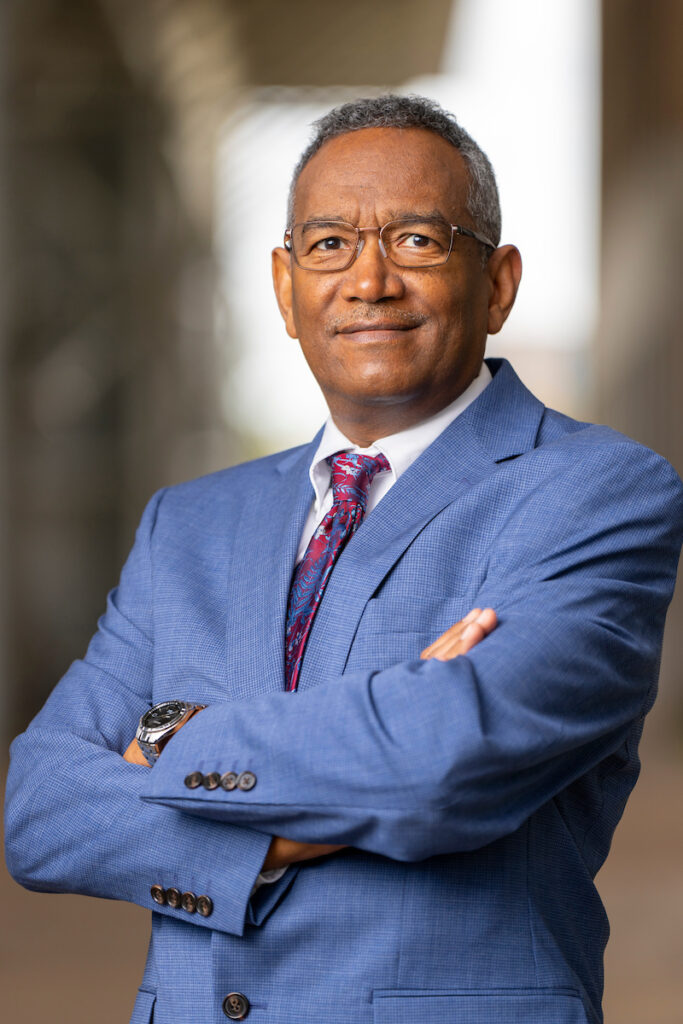Amir Ibrahim named Texas A&M AgriLife Research associate director, chief scientific officer
Role includes leadership position in Texas A&M College of Agriculture and Life Sciences

Amir Ibrahim, Ph.D., has been selected as the new associate director and chief scientific officer of Texas A&M AgriLife Research, and associate dean for research in the Texas A&M University College of Agriculture and Life Sciences, effective Dec. 1.
Ibrahim is a Texas A&M University Regents Professor and an AgriLife Research wheat breeder in the Department of Soil and Crop Sciences. He has worked with AgriLife Research since his arrival at Texas A&M in 2007.
In his new position, Ibrahim will oversee faculty affairs and professional development, grant and contract reviews and approvals, partnerships and collaborations, research compliance, export controls, external employment approvals, faculty support initiatives and strategic plan metrics, among other duties. He also will assist with seed funding programs and legislative requests, and he will serve as liaison to the Texas A&M University Division of Research and The Texas A&M University System vice chancellor for research.
“The associate director and chief scientific officer is critically important to advancing research that nourishes health, strengthens communities, protects natural resources and supports economies,” said G. Cliff Lamb, Ph.D., director of AgriLife Research. “I am thrilled to welcome a leader of Dr. Ibrahim’s considerable expertise and eagerly anticipate the impacts of his contributions.”
Impacts at Texas A&M
Ibrahim’s work at Texas A&M has involved graduate teaching as well as statewide wheat and oat research in collaboration with teams of multidisciplinary experts across Texas, the U.S. and the world.
He leads the Small Grains Project to improve small grain resilience, production and quality. The collaborative program produces regional, national and international impacts and outreach. It includes public and private sector stakeholders and the U.S. Department of Agriculture.
“I feel fortunate that my career path has led to a role where my unique experiences can support a statewide research enterprise like that of Texas A&M,” Ibrahim said. “Working alongside many researchers of many disciplines across geographical locations has primed me to excel, and I’m eager to get started.”
His current research includes mapping of genes and quantitative trait loci associated with biotic and abiotic stress tolerance, end-use quality characteristics, germplasm diversity, genetic distance, yield, hybrid wheat, synthetic wheat, high-throughput phenotyping using unoccupied aircraft systems, and international agriculture, among other factors.
He has released and co-released 30 wheat cultivars and three oat cultivars. His 365 publications include 146 refereed journal articles, and his work has garnered numerous individual and team accolades.
Accolades and experience
Ibrahim is a fellow of the American Society of Agronomy, Crop Science Society of America and AgriLife Research. He serves as chair of the advisory committee for the Texas A&M AgriLife AgriGenomics Laboratory, chair of the promotion and tenure committee in the Department of Soil and Crop Sciences, director of the Multi-State Wheat Rust Nursery and was the 2023 chair of the McFadden Symposium. He is a member of the National Wheat Foundation Wheat Nutrition Committee and the Texas Small Grains Advisory Committee, and he has served as chair of the Hard Winter Wheat Improvement Committee and president of the Texas Plant Protection Association.
Ibrahim spent parts of his career at the International Center for Agricultural Research in the Dry Areas, ICARDA, from 1992 to1994, the International Maize and Wheat Improvement Center, CIMMYT, from 1995 to 1996, and South Dakota State University from 2000 to 2007.
He earned a doctorate from Colorado State University in 1998, a master’s degree in 1994 from the American University of Beirut, Lebanon, and a bachelor’s degree in 1990 from the University of Gezira, Sudan.


